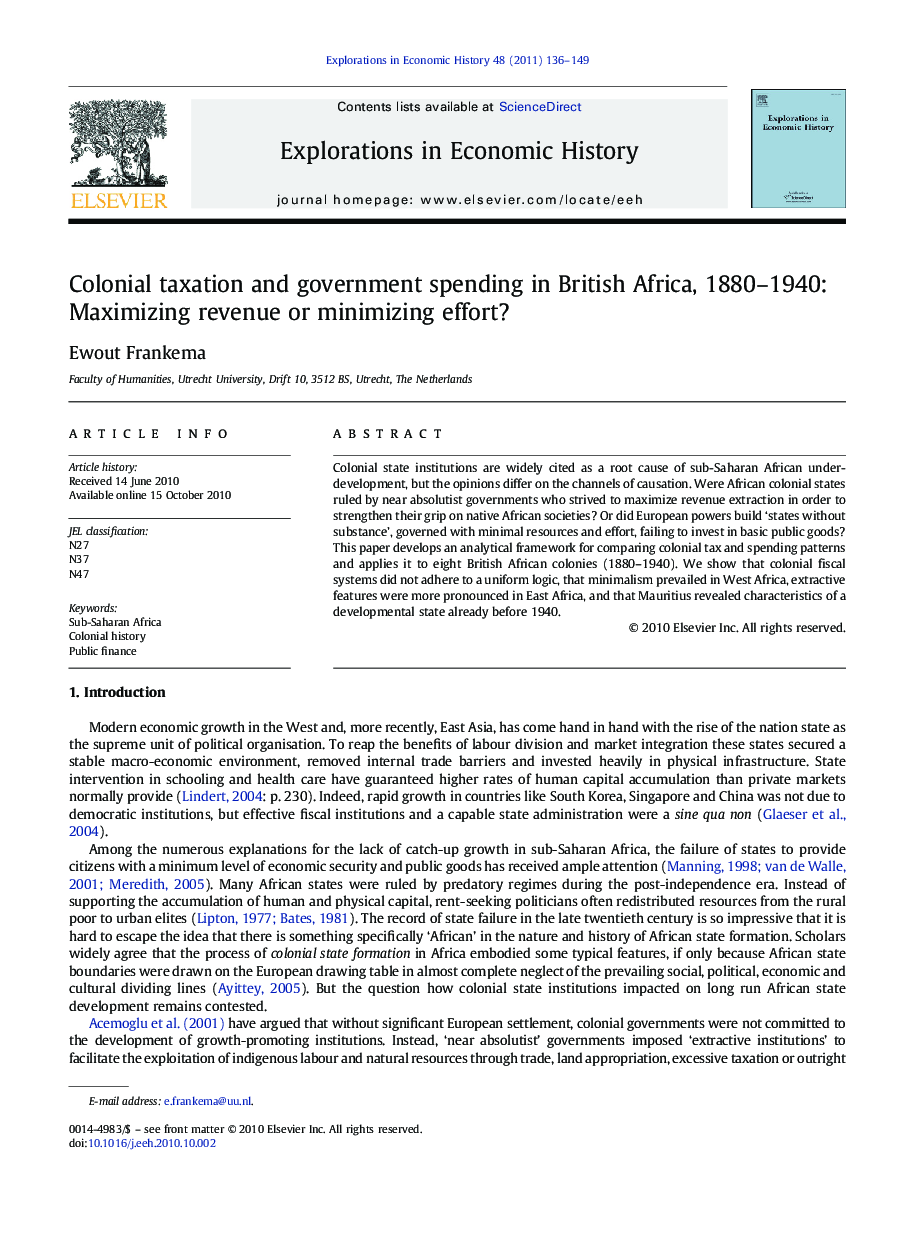| Article ID | Journal | Published Year | Pages | File Type |
|---|---|---|---|---|
| 5068901 | Explorations in Economic History | 2011 | 14 Pages |
Colonial state institutions are widely cited as a root cause of sub-Saharan African underdevelopment, but the opinions differ on the channels of causation. Were African colonial states ruled by near absolutist governments who strived to maximize revenue extraction in order to strengthen their grip on native African societies? Or did European powers build 'states without substance', governed with minimal resources and effort, failing to invest in basic public goods? This paper develops an analytical framework for comparing colonial tax and spending patterns and applies it to eight British African colonies (1880-1940). We show that colonial fiscal systems did not adhere to a uniform logic, that minimalism prevailed in West Africa, extractive features were more pronounced in East Africa, and that Mauritius revealed characteristics of a developmental state already before 1940.
Research Highlights⺠Fiscal systems in British Africa differed because of varying local conditions. ⺠Tax levels in British Africa were comparatively low. ⺠Government spending patterns tended to converge over time (1880-1940). ⺠Colonial fiscal systems in East Africa were more 'extractive' than in West Africa. ⺠The Mauritian government spent significantly more on education and health care.
